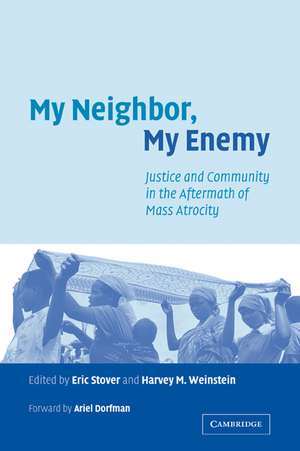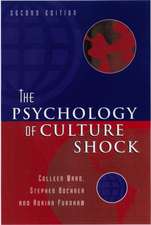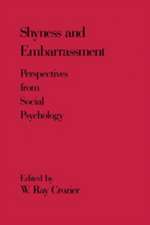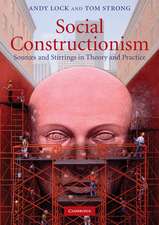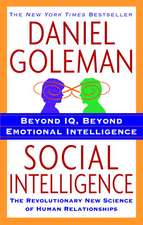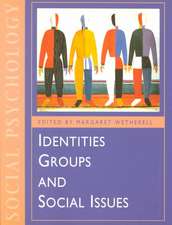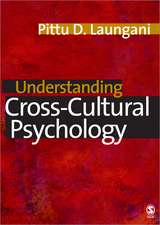My Neighbor, My Enemy: Justice and Community in the Aftermath of Mass Atrocity
Editat de Eric Stover, Harvey M. Weinsteinen Limba Engleză Paperback – dec 2004
Preț: 387.89 lei
Nou
Puncte Express: 582
Preț estimativ în valută:
74.23€ • 76.91$ • 61.95£
74.23€ • 76.91$ • 61.95£
Carte tipărită la comandă
Livrare economică 22 martie-05 aprilie
Preluare comenzi: 021 569.72.76
Specificații
ISBN-13: 9780521542647
ISBN-10: 0521542642
Pagini: 372
Ilustrații: 15 tables
Dimensiuni: 153 x 228 x 28 mm
Greutate: 0.59 kg
Ediția:New.
Editura: Cambridge University Press
Colecția Cambridge University Press
Locul publicării:Cambridge, United Kingdom
ISBN-10: 0521542642
Pagini: 372
Ilustrații: 15 tables
Dimensiuni: 153 x 228 x 28 mm
Greutate: 0.59 kg
Ediția:New.
Editura: Cambridge University Press
Colecția Cambridge University Press
Locul publicării:Cambridge, United Kingdom
Cuprins
List of contributors; Foreword Ariel Dorfman; Acknowledgments; Introduction: conflict, justice and reclamation Harvey M. Weinstein and Eric Stover; Part I. Institutional Approaches to Justice: Introduction; 1. A world unto itself? The application of international justice in the former Yugoslavia Laurel E. Fletcher and Harvey M. Weinstein; 2. Legal responses to genocide in Rwanda Alison des Forges and Timothy Longman; 3. Localizing justice: gacaca courts in post-genocide Rwanda Urusaro Alice Karekezi, Alphonse Nshimiyimana and Beth Mutamba; 4. Exhumation of mass graves: balancing legal and humanitarian needs Eric Stover and Rachel Shigekane; 5. Witnesses and the promise of justice in The Hague Eric Stover; 6. Reparations in the aftermath of repression and mass violence Naomi Roht-Arriaza; Part II. Social Reconstruction and Justice: Introduction; 7. Neighbors again? Intercommunity relations after ethnic cleansing Dinka Corkalo, Dean Ajdukovic, Harvey M. Weinstein, Eric Stover, Dino Djipa and Miklos Biro; 8. Memory, identity, and community in Rwanda Timothy Longman and Théonèste Rutagengwa; 9. Attitudes toward justice and social reconstruction in Bosnia and Herzegovina and Croatia Miklos Biro, Dean Ajdukovic, Dinka Corkalo, Dina Djipa, Petar Milin and Harvey M. Weinstein; 10. Connecting justice to human experience: attitudes toward accountability and reconciliation in Rwanda Timothy Longman, Phuong Pham and Harvey M. Weinstein; 11. Public education and social reconstruction in Bosnia and Herzegovina and Croatia Sarah Warshauer Freedman, Dinka Corkalo, Naomi Levy, Dino Abazovic, Bronwyn Leebaw, Dean Ajdukovic, Dino Djipa and Harvey M. Weinstein; 12. Confronting the past in Rwandan schools Sarah Warshauer Freedman, Déo Kambanda, Beth Lewis Samuelson, Innocent Mugisha, Immaculée Mukashema, Evode Mukama, Jean Mutabaruka, Harvey M. Weinstein and Timothy Longman; Part III. Survivors and Justice: Introduction; 13. Art out of the rubble Pamela Blotner; 14. Trust and betrayal in war Dean Ajdukovic and Dinka Corkalo; 15. Empathy and rehumanization after mass violence Jodi Halpern and Harvey M. Weinstein; Conclusion: a common objective, a universe of alternatives Eric Stover and Harvey M. Weinstein; Index.
Recenzii
"Harvey Weinstein and Eric Stover's edited collection represents, to my knowledge, the first book-length effort to empirically assess the process of social reconstruction and reconciliation in several post-conflict societies, and to ask, what evidence is there for the claims made by international lawyers and others?...This book is essential reading for anyone involved in the emergent transitional justice "industry," as a caution against hubris and simple-minded therapeutic claims, and as a corrective to intoxicating beliefs in the power of international interventions in post-conflict societies." - Global Law Books, Hehal Buhta, NYU School of Law
Descriere
Explores the effects of war-crime trials and how societies rebuild after ethnic cleansing and genocide.
